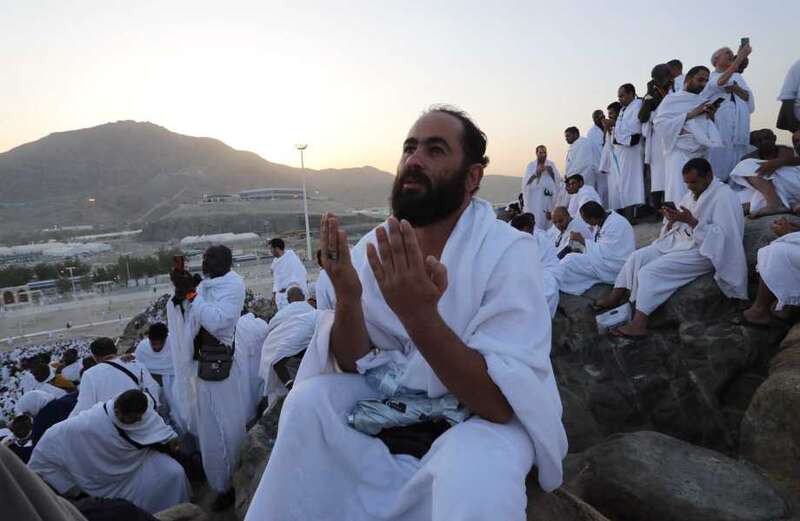THE sacred month of Dhul-Hijjah includes the ten best days of the year.
The ninth day is known as the Day of ‘Arafah, but what does it mean and why is it celebrated?

What is the Day of Arafah?
Dhul-Hijjah is the 12th month in the lunar Islamic Calendar.
The first ten days are known as the best days of the year and it is one of the holiest periods for Muslims worldwide.
The Prophet Muhammad stated that “there are no days greater and more beloved to Allah”.
 Are there illegal baby names? Surprising monikers that are BANNED in other countries, from Sarah to Thomas
Are there illegal baby names? Surprising monikers that are BANNED in other countries, from Sarah to Thomas
The Day of Arafah falls on the ninth say and according to Islamqa it is the day when the "religion was perfected and Allah’s Favour was completed".
The Day of Arafah is also the second day of the Hajj pilgrimage followed by the holiday of Eid al-Adha.
In 2023 the Day of Arafah falls on June 27, 2023.
How is the Day of Arafah celebrated?
During the dawn of the special day, Muslim pilgrims make their way from Mina to Mount Arafat and the Plain of Arafat which was the site where Muhammad gave his last sermons in the final year of his life.
As the pilgrims descend to the plains of ‘Arafat they then combine their Dhuhr and Asr prayers while making du’a - the act of remembering Allah and calling upon Him.
The day culminates with the pilgrims seeking forgiveness for their sins while they stand facing the Qiblah during sunset.
Qibla is the fixed direction towards the Kaaba in the Sacred Mosque in Mecca.
Fasting during the day from when the sun rises to sunset is highly recommended.
Those celebrating the day also recite prayers and duas as much as possible.
It is known as a sacred day spent in supplication and worship and asking for forgiveness for any sins over the past year and the year to come.
 All about Rachel Nickell who was murdered in front of her son Alex Hanscombe
All about Rachel Nickell who was murdered in front of her son Alex Hanscombe
When is Eid al Adha?
Also known as the Feast of the Sacrifice, Eid al Adha takes place on the third day of hajj.
Eid al Adha honours Abraham’s sacrifice of his son Ishmael as an act of obedience to God's command and marks the end of the hajj, which is the pilgrimage to Mecca all Muslims are expected to perform at least once in their lifetime.
In 2023, it's celebrated between June 28 and June 30.



































